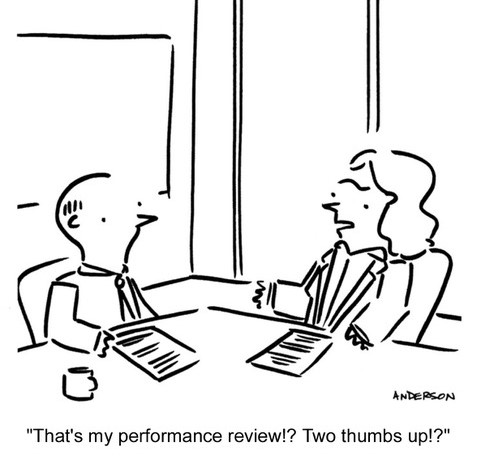Get Better at Feedback
My client Kirsten and I met for dinner last month. We tried a place neither of us had ever been to before; an inviting little bar and restaurant in downtown West Chester.
We sat down, ordered drinks, and started catching up. But before long, we realized we were literally shouting as we strained to hear each other speak over the loud music.
For a few minutes, we accepted our fate. Then, finally, we decided it was time to ask the server if they could turn down the volume. She seemed less than happy with us (as Enneagram Two’s, we hated that!). But, due to our request, the problem was fixed, and our conversation flowed.
For many of us, “difficult” conversations — even when the stakes are low — are hard to have. They conjure up feelings of fear and dread, and so we may find it easier to just put them off or avoid them altogether.
And for those of us who find it challenging to ask a restaurant server to turn down the music, well, giving feedback to someone on our team feels about a million times worse!
We worry that our feedback might hurt the other person’s feelings and possibly damage a relationship or result in some other negative fallout. And it just plain makes us uncomfortable. Studies show that when delivering constructive feedback, our heart rate spikes as much as 50%, the same amount as during public speaking and root canals.
But, without feedback, the odds of improving are significantly reduced:
Blind spots will (probably) continue to be blind spots
The other person won’t reach their goal or potential
Problems won’t get solved promptly
So, with an understanding that giving constructive feedback is worth doing, if difficult, here are some things you can do to make the conversation easier…
Prepare in Advance
You don’t want your feedback to feel like a drive-by. Thinking through the objective facts, the questions you may have, and what you’d like to see going forward, will take a little time but will usually result in a better outcome.
As you prepare, ask yourself, “Is this useful?” Feedback shouldn’t just be something you want to get off your chest. The goal is to be respectful and help the other person improve and grow.
Stay Objective
Our brains are hardwired to make quick judgments, so it is helpful to slow down and think objectively about what happened — stick to the facts.
Instead of telling your sales manager they, “lacked executive presence in a customer meeting,” share the specific actions or behaviors you noticed. Maybe they unintentionally asked your customer the same question several times, or didn’t have the materials they needed to demo the product, or laughed when they should have been serious.
Feedback begins with the observable behavior, not the judgment of the behavior. The goal is to avoid labels.
Explain the Impact
The reason you are giving someone constructive feedback is to help the other person understand the impact of their actions and be aware of a gap. Let them know why this feedback matters.
Make it a Two-Way Conversation
One of the best ways to avoid a defensive reaction from the feedback receiver is to establish the conversation as a dialogue between the two of you. By asking open-ended questions, you’ll avoid making assumptions and better understand the situation from the other person’s perspective.
Open the Door to a Better Approach
Help the person see how they might improve. What would better look like? And since this is a two-way conversation, try pulling solutions from them before offering suggestions.
Again, open-ended questions help, such as, “What other approaches might work?” This is also an excellent place to ask, “What support do you need to succeed?” Of course, as a leader you get to add your input to help them course correct.
Don’t Wait
Don’t stockpile feedback. The time to give it is as close to the event as possible; people learn more quickly that way. As feedback guru Aubrey Daniels says, “Feedback delivered less often than weekly is better than nothing… but not much better.”
Leaders Help Others Improve
Remember that as a leader, your goal is to lead through others — helping them improve and reach their potential. So look for opportunities to deliver feedback and make the space to get it done.
Will it be uncomfortable at first? Maybe. But the more you do it, the better you’ll get at it and the less stress you’ll feel along the way.
Gotta run. The coffee shop I’m sitting in has gotten pretty chilly; I need to ask them to turn up the heat!

